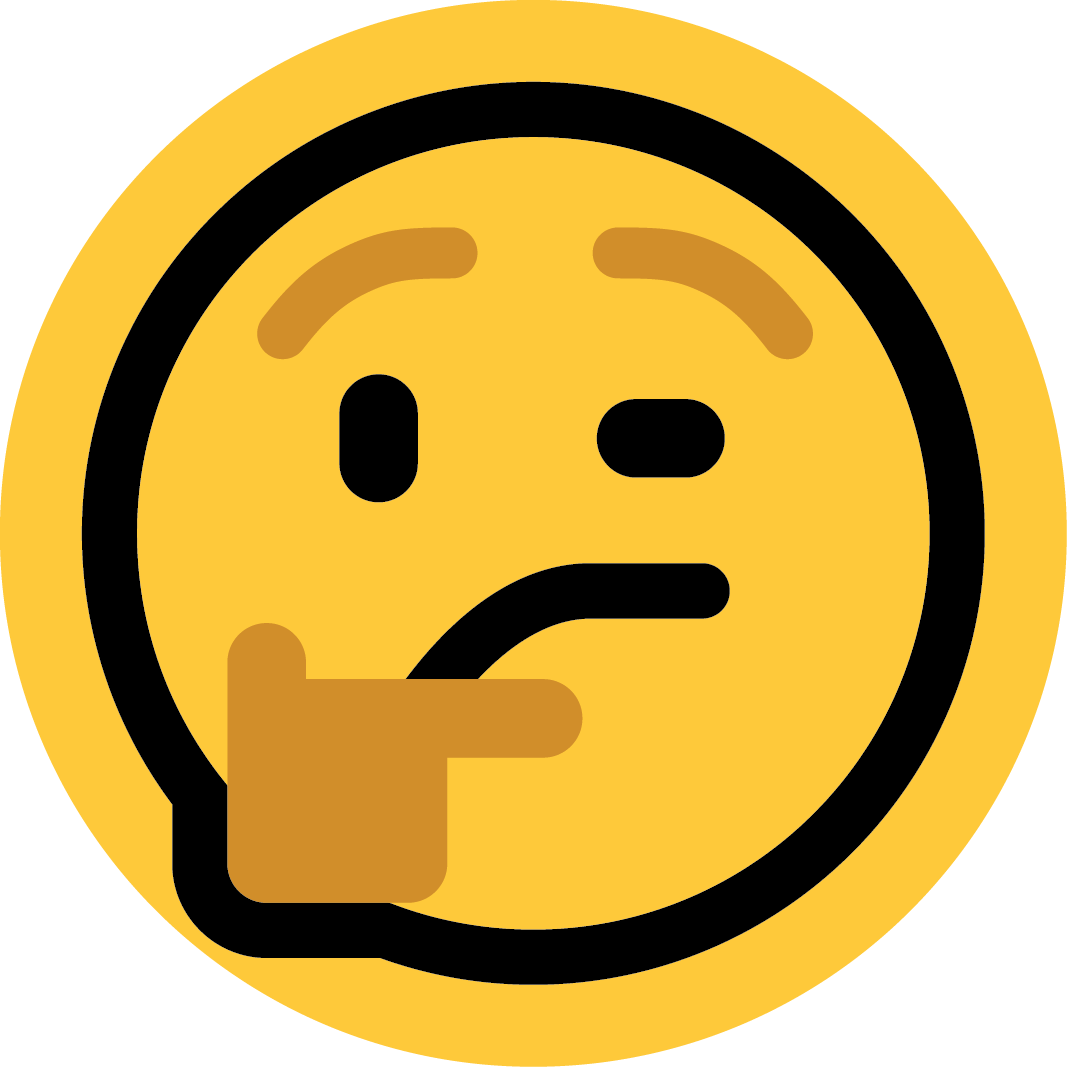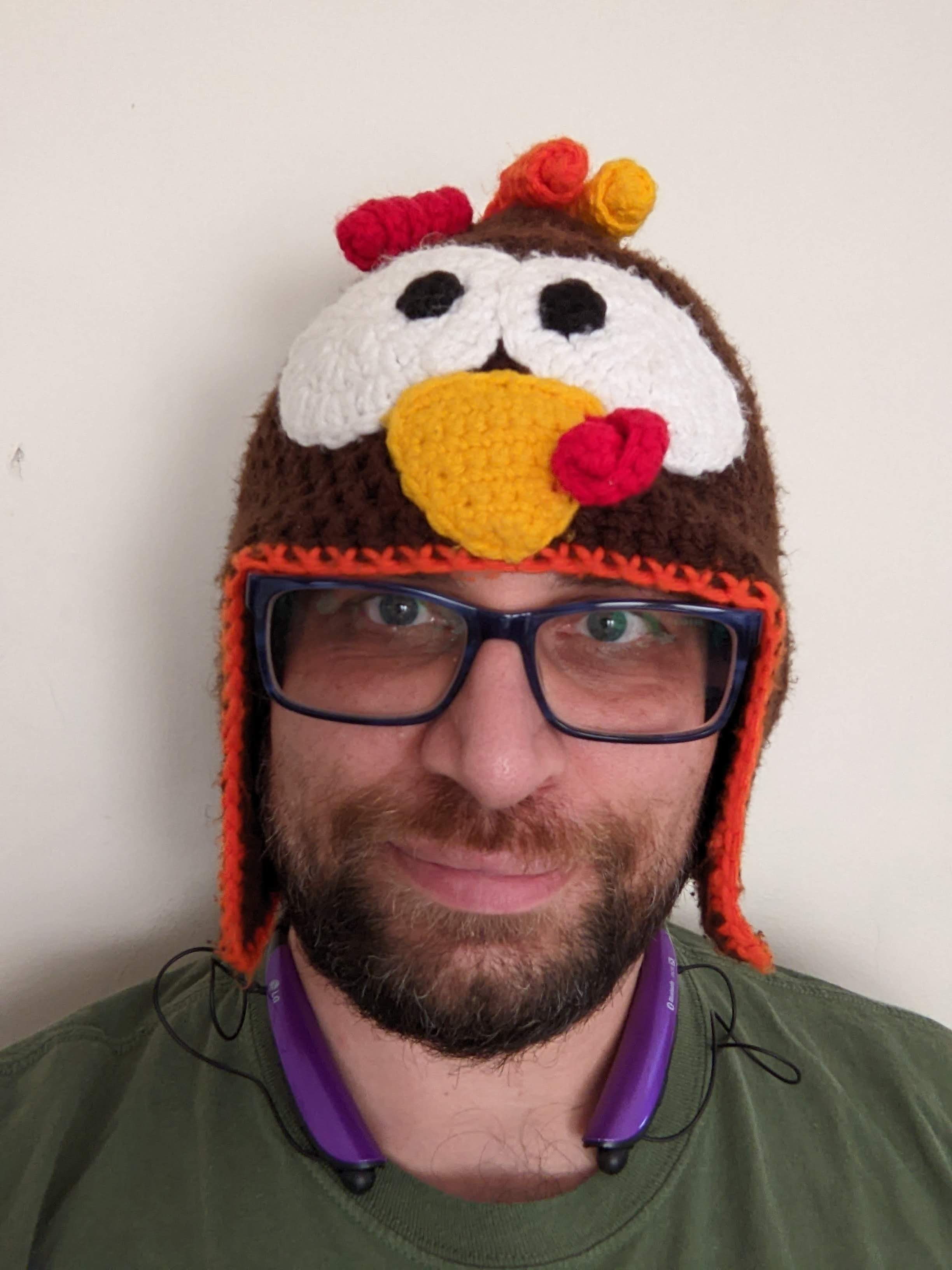I mean…
gestures vaguely
From everything that can be said about the current world situation, this has to be my favorite way to express it
This article is terrible. First off, where do they get 60% from?
They link to the wrong research. The research they link to is a survey of people who already have anxiety. If you look at the research of the actual survey of the whole sample, not just those with anxiety, (here), it says that 42% have a diagnosed mental health condition, which includes an anxiety disorder amongst other disorders like depression, ADHD, and so on.
90% of the diagnosed conditions (90% of 42%) is anxiety, which would mean the actual number for only anxiety would be 37.8%.
78% of those 42% (32.76%) have depression as well. So a lot of those people with anxiety also have depression.
So the actual title should be 38% of Gen Z have an anxiety disorder. Which is only a bit higher than the total population.
According to large population-based surveys, up to 33.7% of the population are affected by an anxiety disorder during their lifetime. https://www.ncbi.nlm.nih.gov/pmc/articles/PMC4610617/
Let’s also not pretend that older generations arent likely wildly under diagnosed because of stigma and lack of any resources. That means Gen Z may just have a totally normal amount of anxiety.
Whilst everything else of your post is on point, the last bit is not really applicable: you can’t really compare “lifetime” probability (i.e. for the age range 0 - life-expectancy) of getting something (i.e. “be affected by”) with the probability of actually having something (i.e. not just be affected by it at any one point but rather being now suffering the effects from it) whilst being in a specific age range (roughly 10 - 30, a subset of the lifetime one).
It might be possible to derive the second one from the first if knowing the statistic distribution in relation to age of that disorder and the average duration of the condition, but as it stands there those 38% aren’t comparable to those 33.7% as they’re statistically quite different things.
That’s not how mental health stuff works. People do not really develop anxiety in adulthood like that. You won’t wake up one day and have suddenly developed a mental health disorder. Mental health disorders require both genetic predisposition and real-life experiences, but those experiences really only affect someone in that way before their brain is fully developed.
Is it a disorder if most of them have it? Wouldn’t that make the anxious the baseline and 40% of them are weird calmies?
It’s a disorder if it affects your ability to function in society.
But maybe we need to change society so it didn’t make everyone so anxious.
To be fair, we have a much better understanding of mental disorders now. Back when I was little, people basically fell under four categories (and these terms aren’t my choosing, just what it was back in the early 80’s): gifted, normal, slow or retarded. That was the extent of our understanding. At least based on my personal experience in an american public school system. I’m sure for older generations things were even more misunderstood.
It’s also important note that people have always had mental disorders. We just didn’t know it was a mental disorder. The main difference is that we know what to look for and we can diagnose the disorder and assign treatment.
This is the same reason people get the ignorant idea of “vaccines cause autism” and then point to the number of people with autism…not realizing all of these new terms aren’t 100 years old. Same with cancer…must be the clean water that keeps our teeth healthy past our 30s…
And some always want to attribute the increase in gun violence to an increase in mental health issues, even though most of those issues have always been there. It’s never the increase in availability of weapons in society.
Because it’s not like you weren’t able to literally order actual machine guns out of the back of a magazine back in the 60s…
So, you think the US is just that much more mentally ill than every other developed country in the world? Of course not. The difference that stands out about the awful gun violence in the US is easy access to weapons.
So, you think the US is just that much more mentally ill than every other developed country in the world?
Very much so yes.
People who are thriving and are mentally well do not just up and decide to kill dozens of people, whether it be with a gun, knifes, improvised explosive, or driving a truck through a crowd.
Access to mental healthcare of literally any sort here is basically impossible for the majority of people. Even as someone living in an area with a two huge medical campuses and health insurance, it still took many months for me to even get an intake appointment to see a doctor, just get a recommendation to be seen by a psychiatrist, for an already diagnosed medical issue that I just needed a script refill for, all because my last psych left the state.
Even then, to be able to see them at all, I’m basically in a huge pool with a bunch of other patients and don’t even work with the assigned psychiatrist directly. If I wanted to see a psych 1:1, I’d have to wait even longer (months), until they had an opening.
Now, I can manage okay without medication. But if I had more serious issues and didn’t have the resources to basically go anywhere I need to in the area to make appointments (car, flexible work schedule, etc), I’d be absolutely fucked. Seriously, I have every possible benefit going for me to get care, and it’s still a massive PITA.
I’m sick of people saying that access to guns is the problem, not because I don’t think it plays a part, but because it diverts attention away from just how absolutely atrocious mental healthcare and social support overall is in the USA. It’s a lazy “solution” to an extremely serious problem, and people would much rather brush it under the rug and take the easy way out while screwing over millions of law abiding citizens, than face the reality that we refuse to take care of our population and let these issues fester until people go on killing sprees. Then when the news breaks, everyone goes on and on about how many clipazines and Assault Rifle-47s the killer had, and rarely the numerous attempts they made to seek mental health that were completely ignored.
Growing up in Colorado, I have a very personal connection with mass shootings. I was just across the street from the Arapaho high school shooting back in 2013, hearing the gunshots and having to shelter at the store I was at. Later to find out it was committed by a student with a recorded history of serious violent outbursts going back to when he was eight, and multiple serious incidents for close to 3 months prior to the attack where he was looking up pictures of mass shootings and making diary entries about plans to shoot his teachers. Columbine was an ever present specter while I was in school. I had a classmate kill himself with a firearm in high school, and watched my teacher break down into violent sobbing in our class the next day because he ignored signs in the journals we had been making for the class.
Time and time and time again, the story is inevitably the same with people committing these acts having shown serious behavioral issues for months if not years, and them going almost completely unadressed. Yes, you could remove the firearms and possibly limit the damage, but when the Arapaho shooter also had brought molotov cocktails, and they were using propane tanks as bombs at Columbine, I seriously question how much of a solution it really is given the underlying issues.
I want to thank you for your response. I’m sorry that you’ve had scary personal experiences with mass shootings. That’s the worst.
That said, I very much disagree with your assessment. Having spent many years of my life overseas in various countries and cultures, I can confidently say that the US is not more mentally ill than other countries. It’s a human condition in all countries with different responses. Is the US mental health system great, no. But it’s no better in most other developed countries. Some are much worse.
But other countries don’t have the epidemic of gun violence that we see in the US. The only significant differentiator is the easy access to weapons. I know gun-rights supporters don’t want to see that, but that doesn’t mean it’s not there. It is.
What is removed?
It’s the r-slur
For those that can’t see the post. The word was not used in a way intended to be hurtful. Just explaining how there was a time when it was in use, along with a lack of understanding about mental illness.
Is it really a disorder if it’s just a normal response to circumstances?
I’m Gen X, not Gen Z, but I think it’s definitely a normal response to circumstances. Retirement has gone from “something I’m going to do someday” to “suddenly on the horizon.” However, my finances aren’t lining up with how much I need to have to retire. (I’m not alone. I saw an article recently that said under 20% of Gen X-ers have enough saved to retire.)
I’m definitely feeling anxious about this. I don’t want to be 80 and working a full time job so that I can pay my monthly bills because my bank account ran dry and the Boomers wiped out Social Security.
It’s going to take everyone going to the streets and demanding social security reform. Americans need to stop being so complacent
Good luck, the time to do that was when you were 18. At this point you’ll be fighting against the people who won’t benefit and the people who probably would benefit but certainly don’t want to pay for it.
Common and normal and valid response doesn’t mean healthy
Body temperature increase is a normal reaction to a viral infection, doesn’t mean you won’t die if the temperature keeps rising until you’re cooked through like a ham though
Death in service of [insert country] is it’s own reward! Life in failure of [insert country] is it’s own damnation. /s
If someone is so addicted to social media that it caused intense mental harm then they get what they deserve.
These dopamine addicted cocaine-rats who can’t stop scrolling do not have my sympathy.
Before you have a meltdown, we often hold religious followers accountable for their religion’s fuckery but we never hold social media addicts for their own behavior. Dumb.
If more than half of a population has it, is it really a disorder? The disordered thing is clearly our society, but rather than fix that we medicate all the people having a hard time living in such a world.
Edit: looks like this headline isn’t true.
Article headline is bullshit.
Their source doesn’t say 61% of Gen Z.
It only surveyed people who already have anxiety.
So it’s 61% of gen z with anxiety have a official anxiety diagnosis from a medical professional.
Thank you, I’ll update my comment!
And it’s been proven that medication doesn’t necessarily work. Over the years, medication has honestly messed me up more than it’s ever helped me, in permanent ways.
GenX
I mean we grew up with boomer parents. Of course we are all anxious and what not, we just had a few decades to cope with it.
Why wouldn’t one be anxious about impending environment crisis and inability of institutions to act quickly enough.
ITT: Boomers gaslighting people who have anxiety
I’m Gen X, not Gen Z, and I definitely feel like my Boomer parents pushed a “if you’re having mental health problems just shut up and deal with it quietly” attitude. When I told my father that I take medicine for anxiety, he thought I should stop taking it and just “stop feeling anxious.” Like there’s a big Off Switch to my anxiety that I forgot to flip.
Trust me, I wish it was that easy. I’d be flipping that switch off and duct taping over it until it couldn’t be turned back on. Sadly, it’s not that easy.
Stop reading crisis media.
Turn off ALL notifications on your phone
Disconnect occasionally.
Or just weed. Copious amounts of weed.
I don’t think putting your head in the sand makes all the world’s problems go away, just makes you ignorant and less prepared to handle them.
Agreed. Paying attention to the local and national news is important. Ignoring the 24 hr crisis news cycle is what I’m referring to.
I know that climate change is happening, am current on recent studies discussing causes, and read about what I can do personally to help. But I don’t watch every broadcast that blame every single possible situation on it, and then continue to harp on it constantly for days on end.
It doesn’t, but it’s also not healthy to dwell on it all the time. People definitely need “down time” where they silence their phones and do things that they enjoy.
In no way is this a “cure” for anxiety, but it can help in many instances.
Take it or leave it, hypervigilance and anxiety or head in the sand and peace.
Is there like some middle ground. Like I want to be prepared for what could happen, but don’t want it to control me where I don’t do anything. Kind of struggling with that right now, to be honest.
That’s just called being normal
Like, I’m aware that the world is fucked. I can’t really change that, though I can do my part.
And the world is not irreparably fucked. Just probably irreparably fucked during my lifetime.
We’ll get it together eventually.
But the point is, why stress, it doesn’t help anything. Don’t worry about it. Either take action or don’t.
Well, I can’t speak to a middle ground, but I can say that my anxiety is at its worst when I stall. If I examine what gives me anxiety and take steps to prepare for it, that alleviates the panic.
I don’t know what eats away at you so I can’t give you the perfect guide. Only you can say what causes you anxiety, and only you can prepare yourself for it.
Also consider fasting for 1 day a week (32 hrs). Its quite healthy for the body, but I also find that my brain tends to lose focus on all the nebulous dominating anxieties (work, money, school, relationsips, wars, the fact that there will never be any more episodes of Stargate SG-1) and instead it focuses on what it percieves as a more pressing threat, starvation. Which you can easily rationalize away because theres food everywhere. Gives me some mental relief and clarity for a day and its a good form of self discipline
Yeah well, I used to use weed for that and now it too gives me anxiety. Won’t touch it unless it’s a single small hit or I got hydroxyzine, CBD, something
Hyrdroxyzine for the win. Cut my coffee intake and I’ve been much better lately about my weed and anxiety combo. Best of luck.
I feel SO much better since cutting out the caffeine. It’s a vicious cycle. It gives you a little emotional boost for a couple of hours, then you’re just left feeling on edge for the rest of the day. Then it fucks with your sleep, and you need caffeine just to get back to baseline the next day.
For me it’s mostly related to my autism among other factors.
What about those of us who can’t use weed because THC interacts with medication?
Exercise all the time
cries in chronic pain condition
That’s rough. Do you have to work FT?
Yeah. I work a great desk job in what I went to school for, so work isn’t rough on my body for the most part aside from typing killing my hands. I am going to see a specialist in April to get checked out to see if I had any comorbid conditions develop.
You see 4 options. You fixate on one.
Not much else to be said.
I wasn’t asking for your opinion, dude
Wasn’t an opinion.
deleted by creator
deleted by creator
Let me share a piece of advice I heard from my father:
“It’s not a problem, we should really be worried about why NASA is covering up planet X”
Checkmate climate anxiety. Your move…
https://youtu.be/nz2OOcPJxcU?si=Uj5yxxFWIgOihvL5
So the truth is less they’re hiding it and more a combination of “we can’t see shit!” and “we have no idea how big or far away this thing would have to be to even begin looking for it!”
I do have to wonder how these figures compare to older generations and to what extent underreporting due to stigmas around mental health could be corrected for between generations.
(I hope this already comes across, but I absolutely don’t mean to diminish the severity of the mental health problems faced by Gen Z or anyone else.)
Yeah, both my boomer parents 100% have anxiety with periods of uncontrollable panic attacks, but they refuse to acknowledge this is the case. There is definitely a stigma when talking about mental health for their generation.
but I absolutely don’t mean to diminish the severity of the mental health problems faced by Gen Z
I, for one, do
Half of y’all are just saying you have mental issues because you’re in the “it’s not a phase, mom” tween phase.
Don’t get me wrong, 30% is still a staggering number, but 60% is just ridiculous. You’re fine. Chill tf out.
Article is bullshit anyway.
Their source doesn’t say 61% of Gen Z.
It only surveyed people who already have anxiety.
So it’s 61% of gen z with anxiety have a official anxiety diagnosis from a medical professional.
I’m actually surprised that 40% are do not have an anxiety amongst those growing up in an environment of constant marketing pressure and social pressure to compare themselves against carefully selected images of other (i.e. real me vs facebook others) all the while slowly realising they’re not going to have access to the same opportunities as they’re parents, will inherit a World shafted in many many different ways and in some countries are pretty much starting their adult lifes in debt slavery.
Maybe those 40% are a mix of those who can’t afford to seek health and those too mentally simple to realize any of this (if you’re so dumb that you “see” very little beyond your little bubble and everything that happens to you is a surprise, you’re not going to be anxious about the future).
“Alright, time for you to get your own place and move out” while looking at unobtainable housing and jobs that don’t cover rent/mortgages.
“Just stop wasting money on avocado toast”
/s (for avoidance of doubt)
deleted by creator
…and under 40% are in denial about having one.
I know an excellent therapist. In her professional opinion, she feels that other therapists and psychiatrists rush to diagnose any patient who comes to them with any type of normal worry or anxiousness about a situation that any normal person would also be worried about. It sort of like physicians who over prescribe antibiotics just because the patient insists. Just slap a label on the person and have them keep coming back for the fee. So, I do not believe the numbers are real. I feel like 60% may be diagnosed, but the number for people with the actual condition is likely much smaller.
I recently went to a therapist for a few sessions because I wanted to talk through some major life changes with an unbiased third party. I have no diagnosed anxiety disorders, but I was told in our earlier meetings that he was going to “diagnose” me with something like “adjustment reaction with anxiety” (or put another way “difficulty working through change”) so that he could continue to see me. This isn’t the serious anxiety disorder that many people struggle with, but would almost certainly be lumped in to the category of “anxiety disorders.” This was apparently done mostly for paperwork reasons; I imagine somewhere on the backend someone might be asking why he’s providing therapy to someone who “doesn’t need therapy” without something entered in.
I still don’t have an anxiety disorder, but that diagnosis is going to be on my chart forever unless I go through a lengthy process to purge it. I’m not saying this is the way every doctor will do things, but it might explain some of the increased prevalence of “disorders” in the population.












